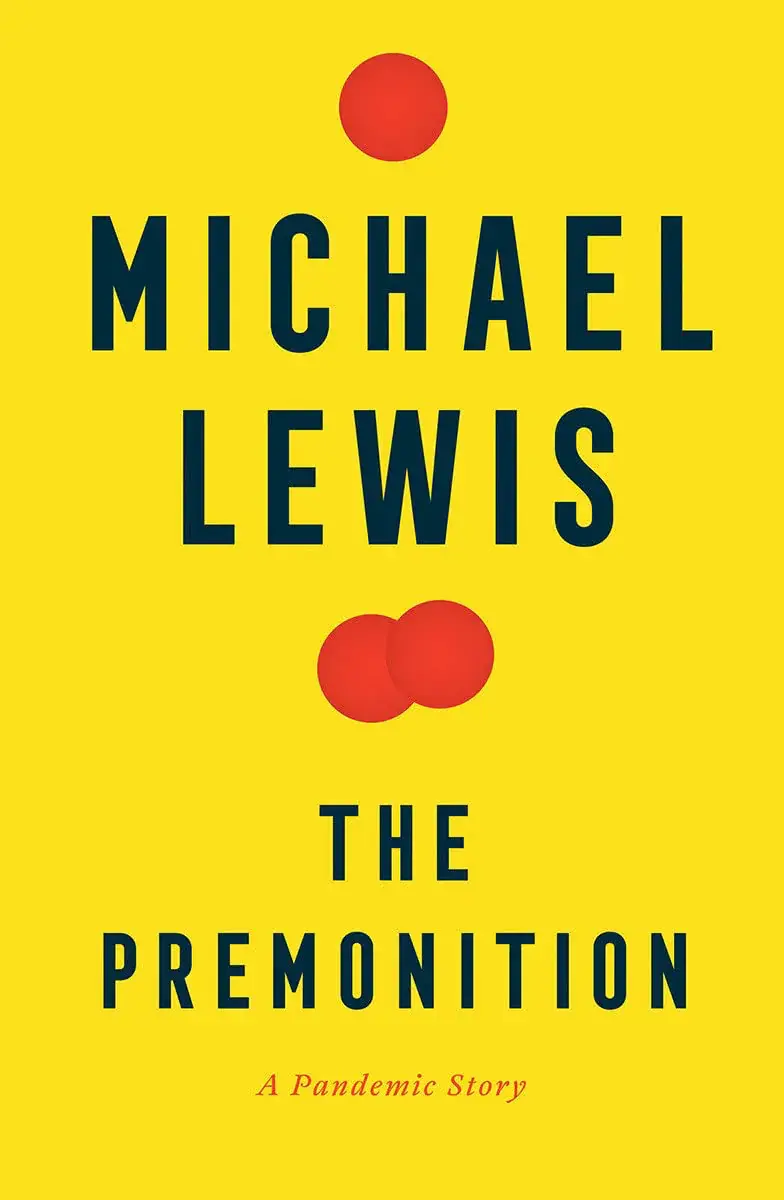The Premonition
by Michael Lewis
Added:
Apr 29, 2022
Book Description
Fortunately, we are still a nation of skeptics. Fortunately, there are those among us who study pandemics and are willing to look unflinchingly at worst-case scenarios. Michael Lewis’s taut and brilliant nonfiction thriller pits a band of medical visionaries against the wall of ignorance that was the official response of the Trump administration to the outbreak of COVID-19.
The characters you will meet in these pages are as fascinating as they are unexpected. A thirteen-year-old girl’s science project on transmission of an airborne pathogen develops into a very grown-up model of disease control. A local public-health officer uses her worm’s-eye view to see what the CDC misses, and reveals great truths about American society. A secret team of dissenting doctors, nicknamed the Wolverines, has everything necessary to fight the pandemic: brilliant backgrounds, world-class labs, prior experience with the pandemic scares of bird flu and swine flu…everything, that is, except official permission to implement their work.
Michael Lewis is not shy about calling these people heroes for their refusal to follow directives that they know to be based on misinformation and bad science. Even the internet, as crucial as it is to their exchange of ideas, poses a risk to them. They never know for sure who else might be listening in.
Notes & Highlights
Two: The making of a public health officer
They said, ‘You need to do these things one at a time and gather evidence.’ They wanted to learn from this meningitis outbreak, and I wanted to stop it. My goal was to stop it, and that was not their goal. They wanted to observe it as if it were a science experiment on how meningitis moves through a college campus. And I was like, ‘Are you kidding me: a kid just lost his feet.”
Charity could see that the CDC’s strategy was politically shrewd. People were far less likely to blame a health officer for what she didn’t do than what she did. Sins of commission got you fired. Sins of omission you could get away with, but they left people dead. The health officer’s job was to choose, all by herself, the direction in which to err: do too much, or too little? “I did not sign up to be that kind of brave,” said Charity. “That wasn’t my plan. I was always saying to the CDC, ‘This is your job! Do your job!’ But after the UCSB outbreak, my motto was, ‘Stop waiting for someone to come and save you. Because no one is coming to save you.’ ”
Five: Clairvoyance
There was, Carter thought, a downside to experience. “Experience is making the same mistake over and over again, only with greater confidence,” he said. The line wasn’t his, but he liked it.
Heidi Avery, the hard-ass boss, asked him to stay in the White House to help her think about any problems that might arise. Carter now sensed when she might have changed her mind about him. Early on, they’d been discussing the pandemic plan, and he had shared with her his thoughts about maps. They were also his thoughts about plans, as a plan is a kind of map: a map of what you plan to do. He told her a story about some troops who’d gotten lost in the Alps. “They’re in a blizzard,” said Carter. “A guy finds a map in his backpack. The map leads them to safety.” What was cool about the story, Carter thought, was that once the soldiers were safe and able to study the map more closely, they saw that it was a map not of the Alps but of the Pyrenees. “A map has value when you are lost,” he said. “It gives you a starting point.” There was an analogy with his earlier life as a doctor in an intensive care unit. “The patient is fading right there in front of your eyes,” he said. “You cannot run out of options. Because what do you do when you run out of options? You panic. Having something in front of you, a map, a plan, a list of treatments, even if it isn’t completely right, is better than nothing.”
Get a copy
